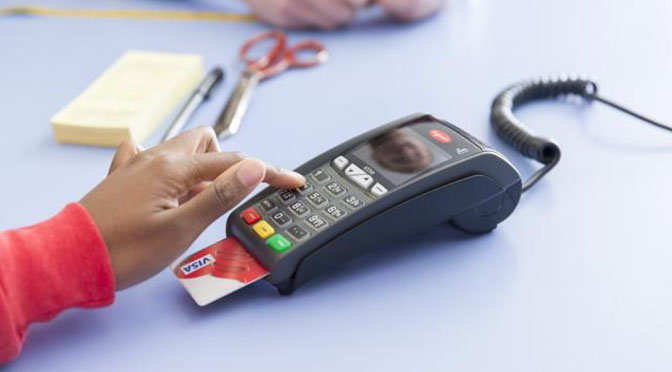A year ago we posted an article about customer service. Specifically, it was about ensuring that as a small business owner you’re providing all the tools employees may need to give great customer service.
These kinds of tools—proper employee training, observation and monitoring, and regular feedback—remain vital for any small business that’s going to run smoothly. However, there are some aspects of a modern business that can go beyond employee-customer interaction to create a great experience for the customer. Essentially, certain aspects of a store experience can now be automated for the sake of customer convenience and satisfaction.
Countertop Card Readers
Modern consumers expect convenience and quickness when shopping, and it’s one reason that so many have moved primarily to online retailers. There’s value in fast, easy transactions. This means that relying on traditional payment methods (whereby a customer hands cash or a card over to an employee for processing), you may be testing the patience of many of the people visiting your shop.
Fortunately, there are easy alternatives to traditional payment methods. Worldpay explains that by using a countertop card machine, for instance, you can serve customers quickly and seamlessly. These machines allow customers to swipe their own cards (or in some cases simply scan mobile versions of their cards), enter PINs if necessary, and be done with the transaction. An employee is still needed to kick off the transaction, but this simple shift can do a lot to improve the customer experience.
App Outreach
The idea that designing a mobile app can be of service to a small business is not necessarily a new one, but it’s something that’s still only beginning to take hold with a lot of new companies. Simply put, by building and maintaining such an app, you can drastically expand your capacity to interact with customers and expand your brand recognition.
More specifically, Buildfire wrote an analysis of why small businesses need mobile apps just last December, and pointed to a number of attractive benefits that deal with serving customers. Basically, with a mobile app you can achieve a direct and constant two-way channel to build customer loyalty, disperse information, and send push notifications about sales, new goings-on with the company, etc. These are some of the same benefits modern consumers expect from online retail sites (typically via email), applied to an in-person store.
Beacons
Finally, there are beacons to consider. Used primarily in major retail chains with superstores spread across the country, beacons are arguably doing more than any other modern technology to help in-person stores catch up to the convenience and efficiency of online shopping. They’re starting to be relevant for small businesses as well.
With beacons in place throughout your store, you can set up an automated system that recognizes customers and sends them any relevant information over WiFi or Bluetooth. This can mean more push notifications, rewards points for visiting the store, or information about where or how to find a product or service. They’re not meant to replace employees on the floor, but beacons can essentially serve as customer service tools that take the experience to the next level for the shopper.
Most store owners and many customers will ultimately agree that nothing beats a knowledgeable employee offering assistance. But through these modern tools, you can at least increase efficiency in a way that modern shoppers will almost universally appreciate. Altogether it’ll make the employees’ jobs easier and the customers’ experiences better.





